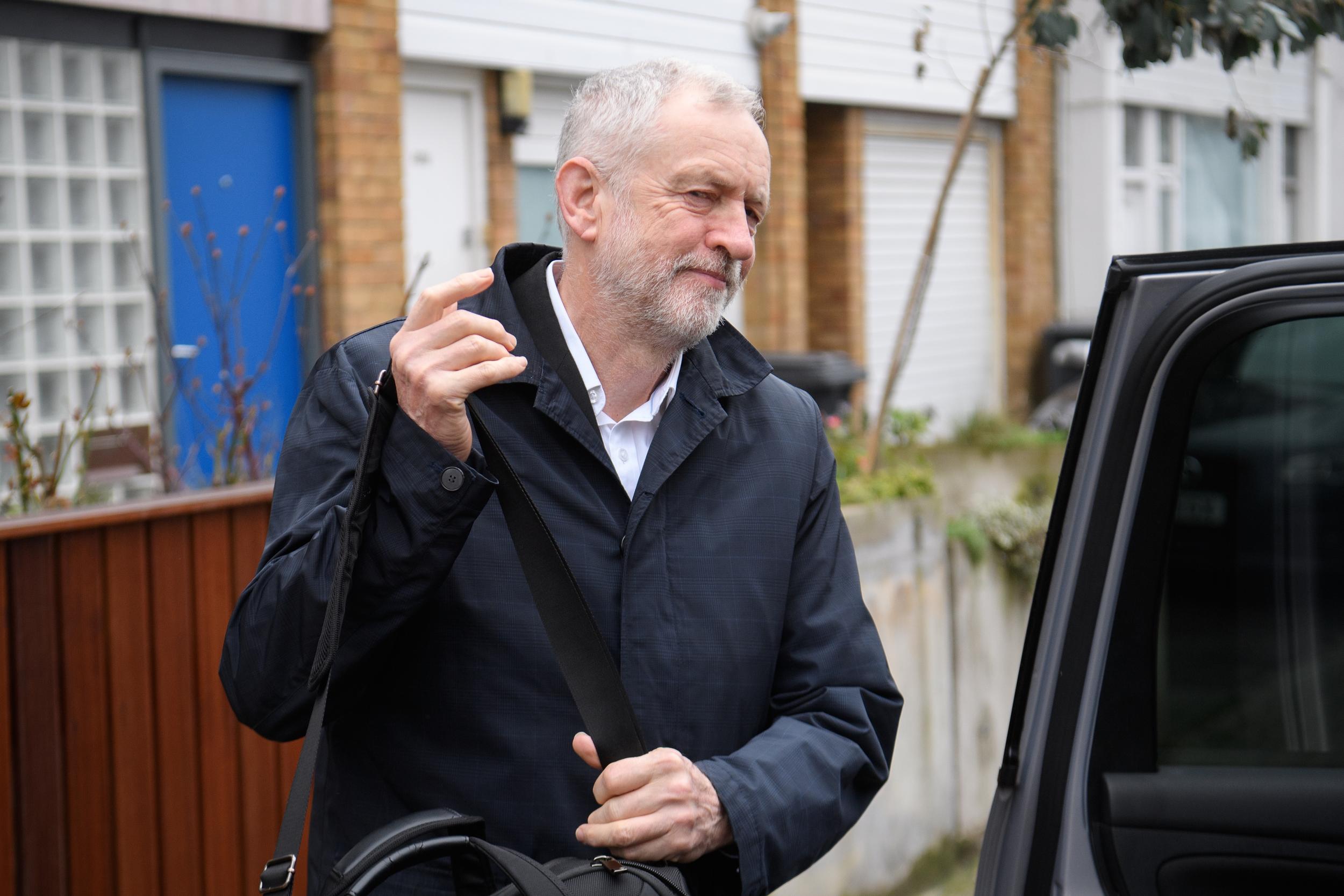Jeremy Corbyn will not attend weekly PLP meeting with Labour MPs after historic by-election defeat
Labour MP Andrew Gwynne, who led the party’s campaign in Copeland, and Ian Lavery, a shadow Cabinet minister, are expected to lead the tough discussions

Jeremy Corbyn will not be attending the weekly gathering of Labour’s MPs in Westminster to discuss the party's historic by-election defeat in Copeland last week.
The Independent understands Andrew Gwynne, who led the party’s campaign in Copeland, and Ian Lavery, a shadow Cabinet minister, will lead the tough discussions during Monday’s Parliamentary Labour Party (PLP) session.
Jack Dromey, the Labour MP who helped run the successful defence of the party’s Stoke-on-Trent Central seat, is also expected to lead conversation.
The Labour leader did attend last week’s session, telling his parliamentary colleagues that the by-election in Copeland was on a “knife edge”. But on Thursday the party suffered a historic loss in the Cumbrian seat – the first time a governing party has won a seat off an opposition since the early 1980’s.
Speaking at the Scottish Labour Party conference in Perth at the weekend, Mr Corbyn said he took his “share” of the responsibility for the defeat and conceded that the party had not yet done enough to rebuild trust with disillusioned voters.
But with his critics demanding a change, either in leadership or strategy, anger spilled over when Corbyn ally Baroness Chakrabarti gave an interview suggesting Copeland could in-part be explained by other factors including bad weather, Labour voters being less likely to have a car, low turnout, Brexit divisions, false claims about Mr Corbyn’s views on nuclear power, and ill-treatment in the media.
A jubilant Theresa May, however, said her party’s victory in Copeland showed how the Conservatives had become “truly the party of working people”.
Labour MP Lisa Nandy, a former shadow energy secretary, said the by-elections were “very bad results” for Labour, telling Sky News: “I think the trouble with looking at every factor apart from Labour, is that it’s just a severely inadequate response.”
She added: “Labour is in real trouble and there is no point pretending that isn’t the case.”
The PLP meeting also comes after an article emerged from John McDonnell, the shadow Chancellor, claiming there was a “soft coup” taking place within the party to overthrow Mr Corbyn.
He said the attempt to take down the leader was “being perpetrated by an alliance between elements in the Labour Party and the Murdoch media empire”.
To confuse matters, a spokesperson for Mr McDonnell said the day after the article's publication online that it had been written last week and that he now “wants us all to focus on party unity following last week’s by-election results”.
Join our commenting forum
Join thought-provoking conversations, follow other Independent readers and see their replies
0Comments